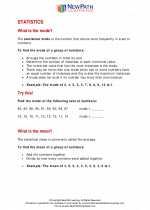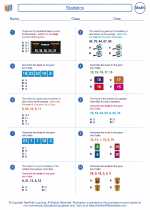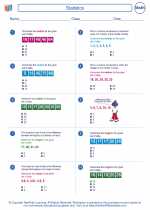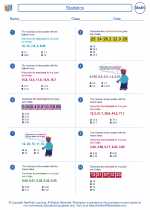Conditional Probability
Conditional probability is the probability of an event occurring given that another event has already occurred. It is denoted as P(A|B), which reads as "the probability of event A given event B."
Formula
The formula for conditional probability is:
P(A|B) = P(A and B) / P(B)
Example
Suppose we have a deck of 52 cards. What is the probability of drawing a king from a deck of cards, given that the card drawn is a face card?
Let's solve this using conditional probability:
Event A: Drawing a king (4 kings in a deck)
Event B: Drawing a face card (12 face cards in a deck)
P(A and B) = 4/52 (probability of drawing a king from a deck of cards)
P(B) = 12/52 (probability of drawing a face card from a deck of cards)
Therefore, P(A|B) = (4/52) / (12/52) = 1/3
Study Guide
- Understand the concept of conditional probability and its notation P(A|B).
- Learn the formula for conditional probability: P(A|B) = P(A and B) / P(B).
- Practice solving problems using conditional probability in different scenarios.
- Understand how events are dependent on each other in conditional probability.
- Work on real-world problems that involve conditional probability, such as weather forecasts, medical tests, and more.
With this guide and understanding of conditional probability, you can solve various probability problems and make informed decisions based on conditional events.
[Conditional Probability] Related Worksheets and Study Guides:
.◂Math Worksheets and Study Guides Fifth Grade. Statistics

 Worksheet/Answer key
Worksheet/Answer key
 Worksheet/Answer key
Worksheet/Answer key
 Worksheet/Answer key
Worksheet/Answer key
